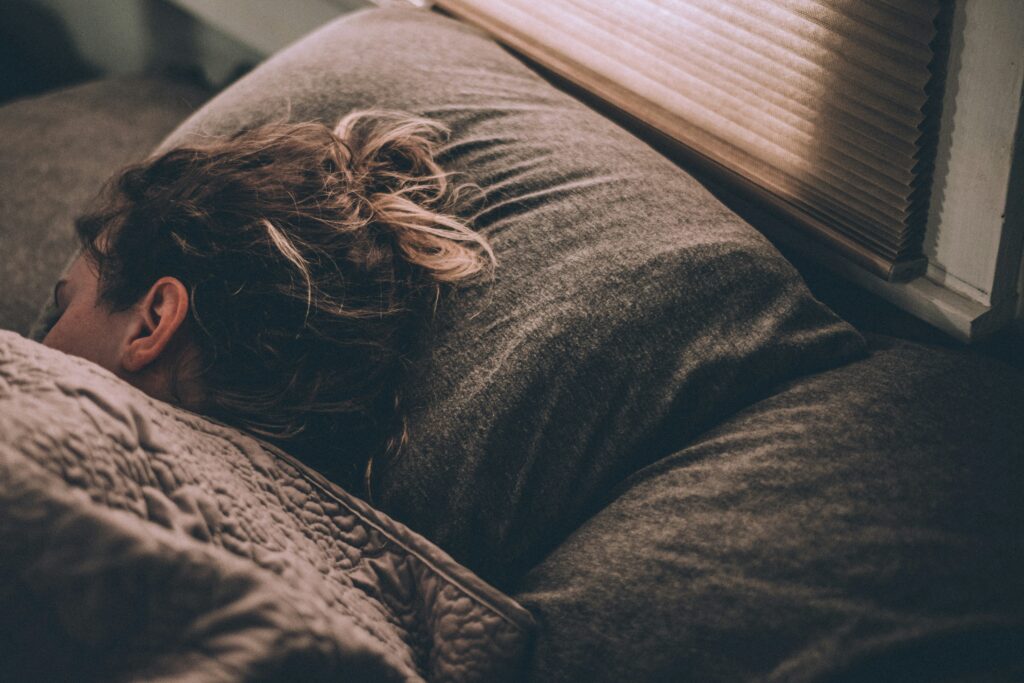We’ve all heard that it’s important to get enough sleep. But just how important is it to catch those zzz’s?
Turns out, poor sleep hygiene affects us in many ways–from our energy to our lifestyles to our long-term health.
Recently, we sat down with FemmePharma’s Medical Advisory Board member Dr. Nicole Swiner to unpack the science of sleep, its importance, and practical tips for getting better rest.
The importance of getting enough sleep
Let’s face it: the grind culture of “sleep when you’re dead” is doing us more harm than good. Sleep isn’t just about feeling rested—it’s essential for our cardiometabolic health, which includes issues like obesity, diabetes, heart disease, and inflammation. Poor sleep hygiene impacts mental clarity, emotional stability, and physical resilience, leaving us vulnerable to fatigue, mood swings, and long-term health issues.
Sleep serves as your body’s nightly reset button. It’s the time when your organs recover, your oxygen levels stabilize, and stress hormones like cortisol decrease. With poor sleep hygiene, your body struggles to maintain balance, leading to increased risks of chronic illnesses. It’s important to get six to eight hours of quality sleep each night for optimal health—whether you’re a teenager or in the throes of menopause.
Types of sleep issues
We’re all familiar with insomnia, but that’s not the only sleep issue that interferes with our nightly zzz’s. Other culprits include:
- Sleep apnea. Breathing interruptions that disrupt deep sleep and can lead to oxygen deprivation.
- Hypersomnia. Excessive sleep that still leaves you feeling unrefreshed.
- Shift work sleep disorder. Erratic work hours that throw off your circadian rhythm. Shift work sleep disorder, or SWSD, affects people who work outside of the normal 9-5 workday, such as healthcare workers who work overnight shifts.
- Restless leg syndrome. The constant urge to move your legs, making restful sleep elusive.
Regardless of the type, poor sleep leaves your body deprived of the recovery time it needs to function optimally.
The consequences? A cascade of issues that affect your heart, weight, energy levels, and even your mental sharpness.
How does poor sleep hygiene affect our lifestyle?
Ever notice how bad sleep leads to bad decisions? Sleep deprivation doesn’t just make you tired—it changes your brain. Grogginess often leads to a reliance on sugary snacks, caffeine, or carb-heavy meals for a quick energy fix. Over time, this creates a vicious cycle:
- Diet: Lack of sleep increases cravings for high-calorie, sugary foods, making weight management harder.
- Exercise habits: Fatigue kills motivation to work out, but regular exercise is crucial for breaking the cycle. (Just be sure not to do it too close to bedtime!)
- Weight gain: Studies show poor sleepers are more likely to gain significant weight over time, setting the stage for obesity and related conditions like diabetes.
Thus, poor sleep is often the root cause of why people struggle to maintain healthy habits.
How does lack of sleep affect us in the long run?
Sleep deprivation doesn’t just ruin your morning—it takes a toll on your body over time. Elevated stress hormones like cortisol keep your body in a constant state of “fight or flight,” which can lead to:
- Tightened blood vessels, causing high blood pressure.
- Impaired glucose control, increasing your risk of type 2 diabetes.
- Chronic inflammation, worsening autoimmune issues and accelerating cardiovascular disease.
Your body needs sleep to lower these stress levels, repair tissue, and maintain a healthy metabolism. Over years, poor sleep can quietly pave the way for life-altering health conditions.
It’s a reminder that sleep isn’t a luxury; it’s a foundation of good health.
How can it be improved?
Ready to reclaim your rest? Here are some tips to get you started.
- Cut the caffeine. Avoid coffee, tea, and other stimulants at least six hours before bedtime. Even decaf has trace amounts of caffeine, so keep an eye on the clock. And watch for caffeine in foods like chocolate.
- Create a calm sleep environment. Use blackout curtains, white noise machines, or sleep masks. A quiet, dark, and cool room can make a world of difference.
- Keep a bedside notebook. Wake up with racing thoughts and to-dos running through your head? Jot them down to avoid ruminating. Using a notepad instead of your phone helps reduce the disruption caused by the lights from your gadget.
- Time your exercise wisely: Exercise improves sleep quality, but working out too close to bedtime can make it harder to wind down. Aim for morning or early evening workouts.
- Watch your diet: Limit alcohol, sugary foods, and caffeine close to bedtime—they disrupt your sleep more than you think.
A Call to Action
If you’re still struggling with sleep, Dr. Swiner recommends speaking with your healthcare provider. A thorough assessment or home sleep study can reveal hidden issues like sleep apnea or hormonal imbalances.
If you’re considering over-the-counter remedies, we recommend trying natural sleep-promoting options first. FemmePharma’s Mia Vita Sleep product contains natural ingredients that help promote restful sleep.
Sleep is the unsung hero of a healthy life. By making a few changes, you can improve your sleep and, in turn, your overall well-being. Let’s stop treating sleep as optional—it’s your secret weapon for thriving. Sweet dreams!
Dr. Swiner is a board-certified family physician and bestselling author of the book How to Avoid the Superwoman Complex: 12 Ways to Balance Mind, Body & Spirit. For a deeper dive into this content, check out her discussion with Gerianne DiPiano on the Love, Mia Vita Podcast.
